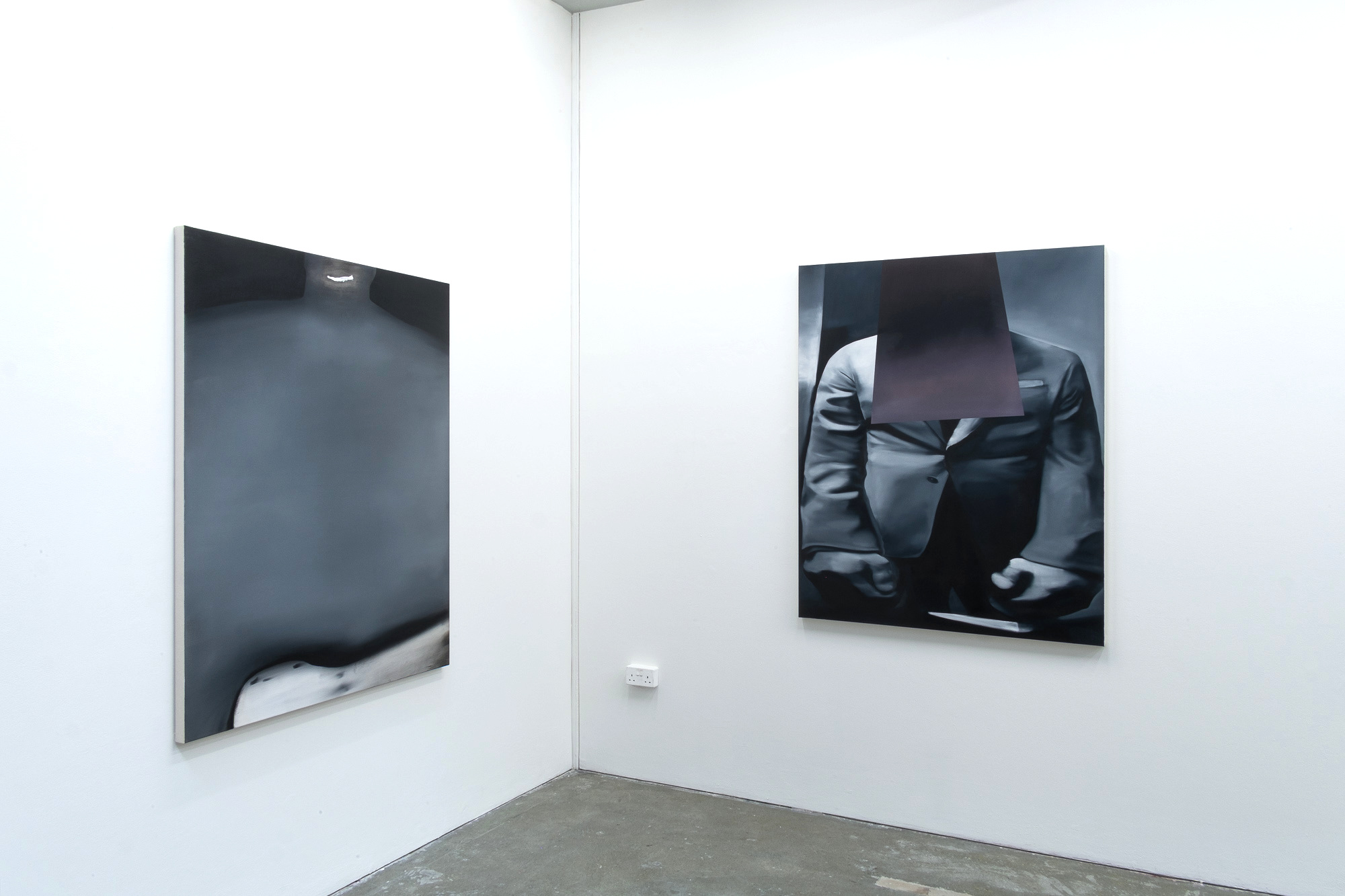Du Jingze

“After living in London, I definitely felt the individual’s identity is eroding away for those who work in the corporate world. People trade their personal identity with their corporate identity and efficiency.”
Interview by Simek Shropshire
In a recent artist statement, you posited that power ("the typical masculine power, the soft power; the healthy power and the unhealthy power; the constructive power and the destructive power; the financial power and political power; the playful power and the academic power") is a central theme of your work. Do your investigations of this theme offer social critiques of contemporary culture, or do they function more as acts of voyeurism?
I don’t feel that my emphasis is to critique. I believe a lot of what people do is affected by the time and place they live in. It’s not my place to judge or force my value upon anyone.
My position is quite fluid. I don’t like to nail things down to black and white. Most of things happen in the grey.
I like when there is a lot information and noise to start with. Through comparing and contrasting everything that I read, watched, learnt from conversations and classes, I try to understand how I could make images that fit into the general sphere of things. The image that I make are emblematic of a particular moment. I make work that reflects how I understand the world at a particular time. The meaning evolves overtime, and the work will probably fit into the world differently a year later.
I wasn’t always so comfortable with being ambiguous. I struggled with finding my voice when I first moved to London, and I preferred things to be concrete and narrative. I wasn’t as familiar with the bigger climate, and I was in no position to make moral judgements, yet I was trying to.
So having learnt that, I would definitely learn more and say less. I shifted to making simpler images. At the moment, I would place my focus on the theme of power. I would make work that reflect my understanding of power, and try to make work that is relevant to a 2019 audience. But I would refrain myself from making quick one-sided arguments. I want the work to be almost a background noise, a foundation for the viewers to build meanings.
Could you tell us a bit about yourself and your background? Where did you study?
I was born in Yantai, China. I started taking drawing lessons when I was five. I did my BA in the National College of Art and Design in Dublin, and I just finished my MA at the Royal College of Art in London.
You were raised in China and then moved to Ireland when you were 13 years old. In what ways have these two cultures influenced your practice and process? Do you find that one manifests itself more strongly than the other in your work?
When I was a kid, my mum would always take me to museums when we were on vacations. We visit just about everything, historical, military, art, modern and contemporary art etc. Growing up, I was exposed to a lot different types of information and aesthetics. So I became used to being acceptive of new ideas.
I practiced very hard at drawings when I was young. In the East, we put a lot of emphasis on the fundamentals and technical skills. The belief is that if you have strong fundamentals, you could have more freedom with your expression and have be more flexible with your thoughts and style. It's like Kobe Byrant.
Also, I moved a lot growing up, especially in the last ten years. So I became used to adapt to new environments. It’s very interesting to live with so many different people and their families. I guess that feed into the way I experiment.
RCA Degree Show 2019
Blue Jacket, 2019
Childish Valour, 2019
The Dark Green Kiwi Trees Cooling And Breathing, 2019
With Dark Clouds Bleed Steadily, Making A Beautiful Piece of Music, 2019
The oil paintings With Dark Clouds Bleed Steadily, Making A Beautiful Piece of Music (2019) and Childish Valour (2019) present male figures, clad in suits, with colorful geometric shapes positioned over their heads. These works can be read as presentations of masculine power and financial/political power, but it is interesting how the figures' physical forms have been altered and censored by the geometric shapes that overlay them. Is the power of censorship also present in this new series?
After living in London, I definitely felt the individual’s identity is eroding away for those who work in the corporate world. People trade their personal identity with their corporate identity and efficiency. That particular group of people were initially where these distorted figures were sourced from. So I wasn’t really touching on the power of censorship in this case.
What artwork have you seen recently that has resonated with you?
Every single piece from the Jamian Juliano-Villani show at the Massimo De Carlo Gallery in London. They literally blew my mind! Her work is incredibly mature and confident, and they are super fun!
How do you go about naming your work?
I actually write a ton of poems whenever I'm away from the studio. They are terrible so they've never got to shown to anyone. My grandfather is a great writer, and he definitely inspired me a lot. So the only time that romantic side get to sneak in is whenever there’re titles to write.
Is there anything new and exciting in the pipeline you would like to tell us about?
I have a solo show coming up in September in Dublin at the SOL ART Gallery. The show opens on the 5th. It’s a great time of the year! A lot of art, cultural and fashion events are lined up in September in Dublin, amazing time to visit!
All images are courtesy of the artist
Publish date: 21/08/19




